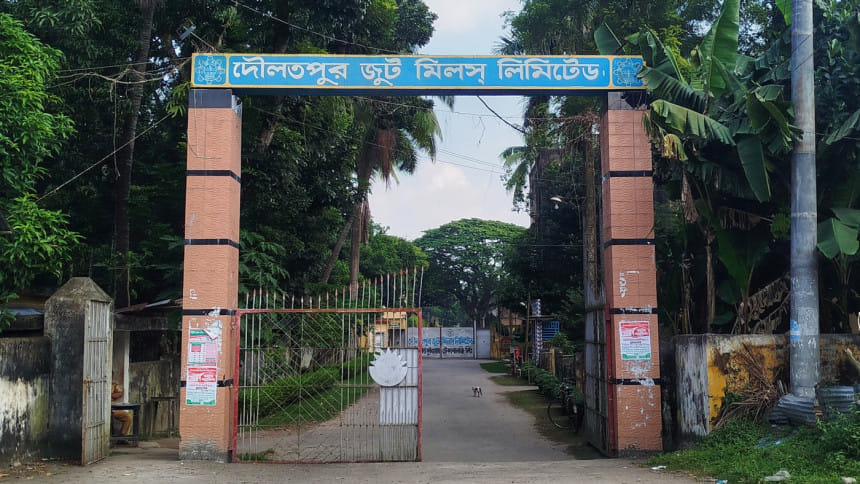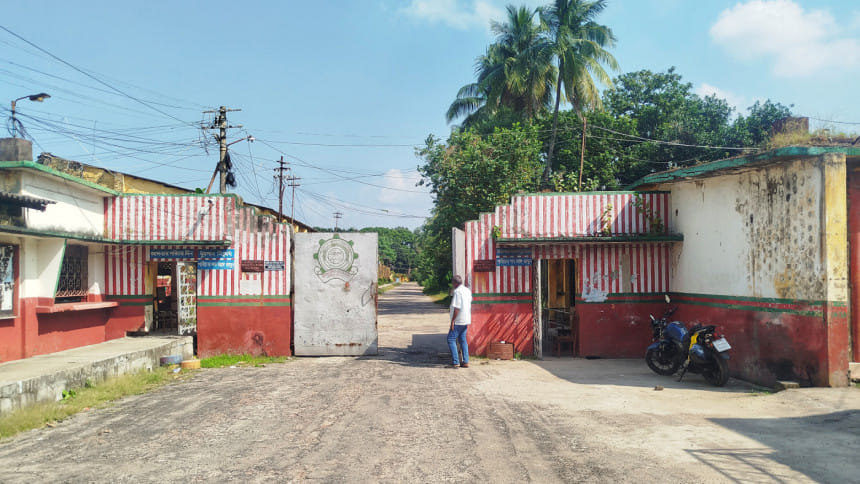Idle jute mills, rising costs

In 2020, the Bangladesh Jute Mills Corporation announced the closure of 25 state-owned jute mills, promising upgrades and a restart within three months. Nearly four years later, these mills remain shuttered, with most now leased to private companies with little experience in the jute sector.
Jute workers and citizens are demanding the mills be reopened under government management, fuelling continuous street demonstrations in Khulna.
In April 2021, the government opted to lease the mills to private firms on contracts ranging from 5 to 30 years.
The closures on July 1, 2020 affected over 33,000 workers, excluding official staff.

In Khulna's jute-producing belt, nine mills were closed, occupying 516 acres, of which 288 acres have been leased or are in the leasing process.
Four of these nine mills have already been leased, and the BJMC recently invited international applications to lease six additional mills, including the Star and Platinum Jubilee Jute Mills in Khulna. Applications are due by November 11, 2024.
WAGE DISPARITIES
Fokran Hossain, who previously worked at Crescent Mill, recently joined a privately run facility in Khulna.
"There are 250 looms at Daulatpur Jute Mill, but only 10 are operational," he said.
"In my first month, I was paid Tk 7,400, despite the government wage scale promising Tk 28,000. Machine operators earn Tk 8,000, while loom operators earn Tk 9,000; their pay should be Tk 32,000 to Tk 38,000," he said.
Workers who have been with the mill from the outset now earn Tk 11,000. Shoemakers, hired from Dhaka, are paid Tk 18,000 -- a disparity adding to worker frustration, he said.
"We want the mills reopened under government initiative and pay in line with the wage commission," Fokran added.
Habib, another worker at the leased Daulatpur Mill, said the shift to private management has driven most jute workers out of their field, with only 130 remaining as the focus has turned to the shoe sector.
According to BJMC sources, Daulatpur Jute Mill was leased to Fortune Group in September 2023, whose subsidiary, Uni World Footwear Technology, now produces footwear at the site.
In November, Akiz Group started production at the JJI Jute Mill in Rajghat, Jashore. Other mills, including Eastern and Carpeting Mills, have been leased to India's Regal Group, while Radiant Group has put forward an advance payment for the Khalishpur Jute Mill lease.
Crescent Jute Mill remains in limbo and no decision has been finalised regarding the Alim Jute Mill lease.
Visiting the Crescent Jute Mill recently, this correspondent came across a desolate atmosphere.
Shrubs have taken over along dilapidated buildings, and silence pervades the once-bustling labour quarters.
When approached, three BJMC employees declined to comment, though security guard Miraj Ali said, "Sometimes, officials visit for lease purposes, but no progress has been made yet."
CONCERNS OVER LEASING PROCESS, PRODUCTION GAPS
On May 18, the former Minister of Textiles and Jute, Jahangir Kabir Nanak, criticised the four leased mills in Khulna for failing to meet production expectations.
He warned that the ministry might reconsider the leases if firms do not employ skilled mill workers and ramp up jute production as initially agreed.
BJMC's regional coordinator in Khulna, Golam Rabbani, said BJMC is following government directives, with two mills currently producing goods and six more in the commissioning stage.
One jute mill remains entangled in legal issues, delaying its handover, he said.
MOUNTING COSTS OF IDLE MILLS
Though production has ceased, BJMC continues to employ 2,347 officers and staff across Bangladesh, with 903 employees stationed in Khulna.
Monthly expenditure on these nine closed mills reaches Tk 4.47 crore, with Tk 3.81 crore allocated for salaries alone. Over the 50 months since the mills' closure, the government has spent Tk 224 crore to maintain basic operations, including security, according to officials.
Mizanur Rahman, a former CBA leader at Platinum Jute Mill, said, "BJMC workers still receive monthly salaries while machinery deteriorates. Some leaseholders prioritise other business ventures rather than reviving jute production."
Kudrat E Khuda, president of the Patkal Rokkhaya Sammilito Nagorik Porishad, said, "We presented the workers' nine-point demands to the interim government's jute and textiles advisor, backed by data. While he assured us of support, we believe that new lease tenders are misguided. The mills should operate under state management with necessary reforms."
"At a time when jute products are in demand globally, Bangladesh's jute mills are closing down," Khuda added. He said over 64 mills that have been leased to the private sector are yet to function.

 For all latest news, follow The Daily Star's Google News channel.
For all latest news, follow The Daily Star's Google News channel. 







Comments